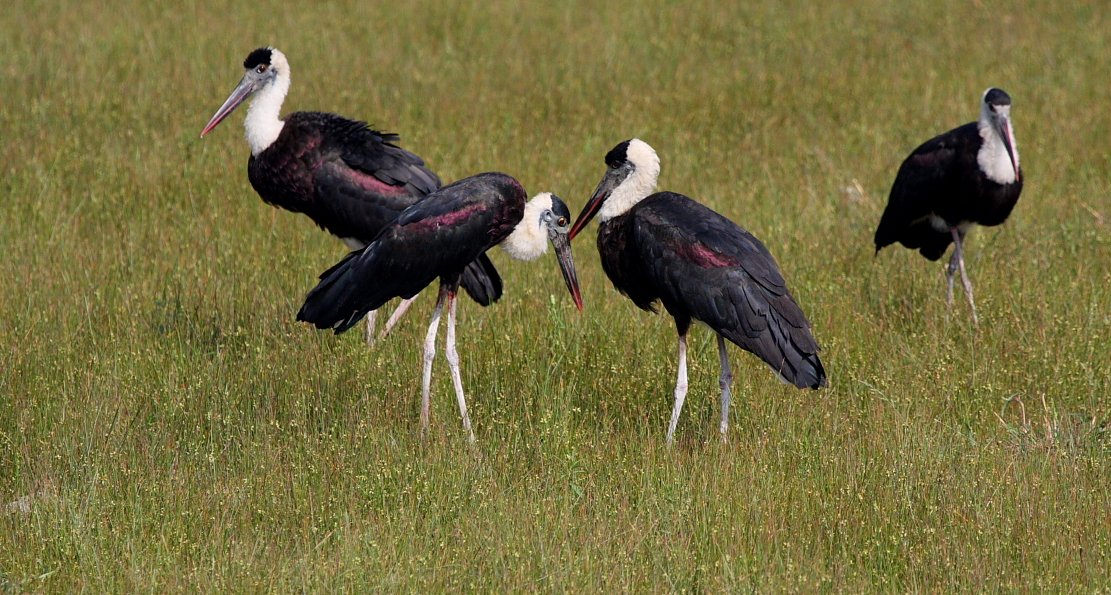
The black-necked stork was recorded for the second consecutive year in Porbandar’s Bardasagar reservoir.
About Black-necked stork:
- The black-necked stork is a tall long-necked wading bird in the stork family.
- Scientific name: Ephippiorhynchus asiaticus
- Distribution: It is distributed in the Indian Subcontinent, Southeast Asia and Australia.
- Habitat: They inhabits wetlands, such as floodplains of rivers with large shallow swamps and pools, and deeper permanent bodies of water.
- Features:
- They are large birds, measuring 110 to 140 cm in length and weighing 4,000 grams.
- Their wingspan is 190 to 220 cm.
- The male and female birds look alike but female is distinguished by its yellow eye.
- IUCN status: “Near Threatened”
Bardasagar reservoir:
- It is located in the Porbandar district, Gujarat.
- The Bardasagar dam is created to store rain water for agricultural purpose.
- The Bardasagar dam and farms on its periphery are the ideal winter escape for thousands of cranese. Common crane and Demoiselle crane.
- Bardasagar is regular nesting ground for elegant Great crested Grebe like Mokarsagar. The “weed ceremony” and dancing ritual of Great crested Grebe can be seen here




